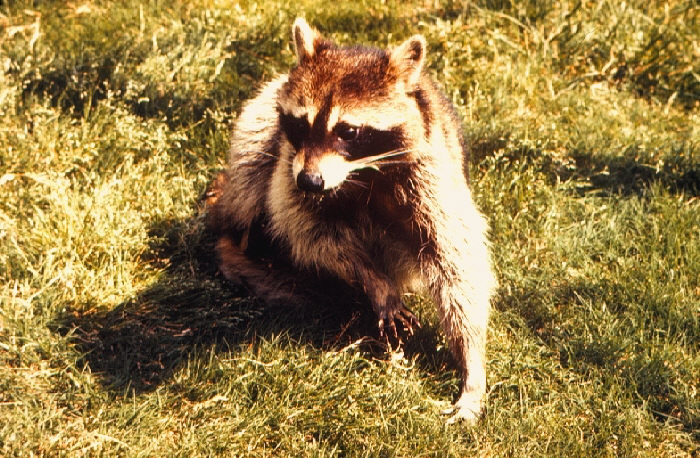A King County, Washington toddler may have contracted the parasitic infection, Baylisascaris procyonis, or the raccoon roundworm, county health officials report. The Centers for Disease Control and Prevention (CDC) is testing specimens from the child’s blood and spinal fluid and results are expected in two weeks. The toddler was hospitalized but is now recovering at home.

If confirmed, it would be the first such case in Washington State.
Baylisascaris procyonis is a roundworm found in the small intestines of raccoons. They excrete the eggs of this parasite in their feces. The eggs can survive in the environment for years under favorable conditions. There can be millions of eggs shed by the raccoon, with high densities in the feces and the soil surrounding it.
Humans and animals get infected by accidentally ingesting eggs from the environment, from raccoon feces, contaminated water or fomites. Raccoons typically defecate in favored areas called latrines. Common latrines include the bases of trees, raised forks of trees, fallen logs, rooftops, woodpiles and decks.
The infection can be severe and even fatal if the roundworms enter a person’s eye, organs, or brain. Baylisascariasis does not spread person-to-person.
Symptomatic infection in humans is relatively rare with less than 3 dozen cases reported; however, new University of Georgia research suggests there can be asymptomatic infections.
Related:
- Raccoon roundworm: Study suggests subclinical infections in wildlife rehabilitators
- Raccoon roundworm: CDC describes seven recent cases, all survivors
- Outbreak News Radio: Baylisascaris procyonis (raccoon roundworm)
- Raccoon roundworm: Pyrantel pamoate/marshmallow mix shows promise in reducing Baylisascaris prevalence
- Toxocara Infection in Children and ‘Man’s Best Friend’


One thought on “Baylisascaris: Suspect case reported in King County”